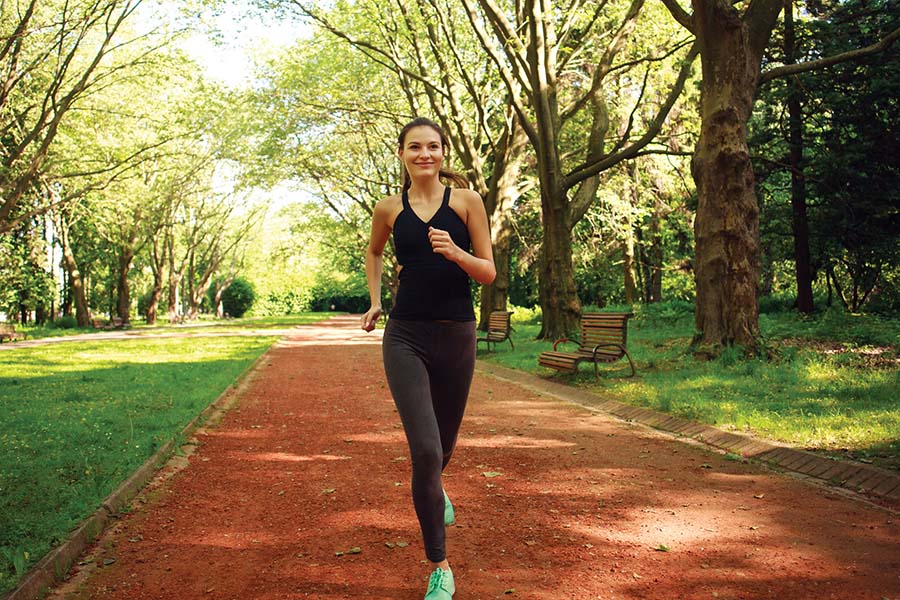10 Ways to Reduce Your Risk of Breast Cancer

According to the American Cancer Society (ACS), more than 300,000 women will be diagnosed with breast cancer in 2024. While the majority of new cases are found in women over the age of 55, it’s never too early to start focusing on your breast health. All women should recognize their risk factors for breast cancer and how their lifestyle choices can increase their chances of developing the disease, says Dr. Luz Ramos, Independence Blue Cross medical director.
“The biggest risk factor for breast cancer is having close family members, like a mother, sister or daughter, with the disease,” Dr. Ramos says. “This includes family history on both the mother’s and the father’s sides.” While genetics and age may be out of your control, making certain lifestyle choices can minimize your chance of developing the disease. And if genetics put you at a greater risk, routine screenings—and in some cases, advanced screening—can raise your chances of early detection and lead to a better outcome should you receive a breast cancer diagnosis.
We spoke to Dr. Ramos about how women can reduce their breast cancer risk and what strategies they can adopt to take charge of their breast health. Here are 10 ways women can get started today.
1. Know Your Risk Factors
The first step in minimizing risk factors is figuring out what your risk factors are. Learn how your lifestyle may increase your risks and do a deep dive into your family history—the more info you have the better.
2. Be Active
Regular exercise is good for your health across the board. ACS recommends at least 150 minutes of moderate or 75 minutes of vigorous activity a week. That’s five 30-minute walks a week or three 25-minute runs.
3. Get Screened
Routine screening saves lives. Teens can start with self breast exams, and women in their 20s should have clinical breast exams at their annual gynecology appointments, Dr. Ramos says. Over 40, get a mammogram yearly.
4. Get Screened (Genetically)
Anyone with a personal or family history of breast, ovarian or pancreatic cancer, especially diagnosed at age 50 or younger, should consider genetic counseling and potentially genetic testing around age 25, Dr. Ramos says.
5. Learn about Advanced Screening
Prior mammogram results, breast density, or health and family history may require advanced screening like MRI or ultrasound. Talk to your doctor to see if you need it.
6. Eat Your Fruits and Veggies
Studies show following a Mediterranean diet that focuses on fruit, veggies, whole grains, legumes and fish instead of red meat can lower your breast cancer risk.
7. Limit Alcohol
Studies have shown that drinking alcohol increases a woman’s risk of hormone-receptive-positive breast cancer. Women who have three or more drinks a week have a 15% higher risk of breast cancer than women who don’t drink at all.
8. Quit Smoking
Smoking has been linked to a higher risk of breast cancer, especially in perimenopausal women. Quitting will not only reduce your breast cancer risk, but it will improve your overall cardiovascular and lung health as well.
9. Maintain a Healthy Weight
Staying at a healthy weight can be challenging—especially after menopause. But having more fat tissue can raise estrogen levels, which in turn can increase your chance of getting breast cancer.
10. Prioritize Sleep
Getting a good night’s sleep is important for breast cancer prevention, Dr. Ramos says. To do so, limit alcohol and caffeine, get regular exercise and maintain a consistent sleep schedule.
This is a paid partnership between Independence Blue Cross and Philadelphia Magazine